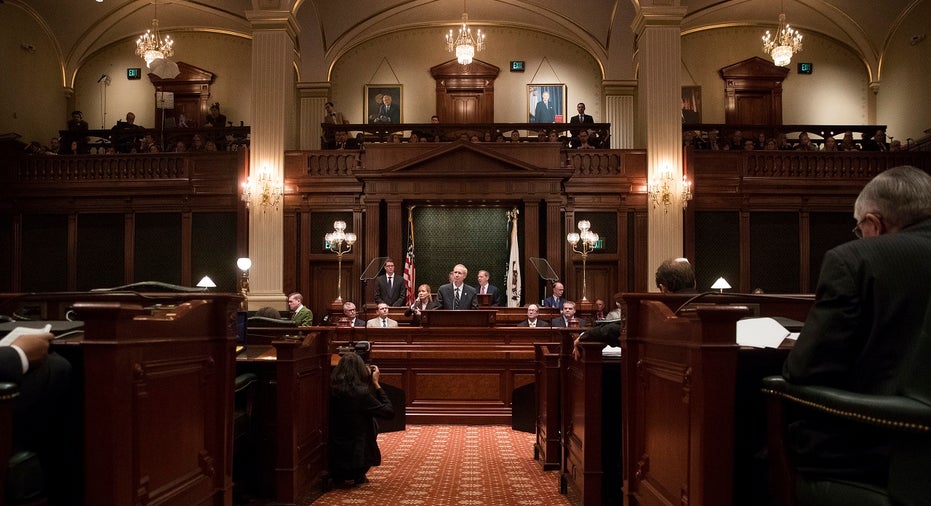Illinois comptroller urges state to tackle massive backlog of unpaid bills

Illinois Comptroller Susana Mendoza released a public plea on Monday urging the governor to quickly sell up to $6 billion of bonds to help pay off overdue bills before the state debt authorization expires at year end.
Mendoza, a Democrat, said Illinois' bill backlog is costing residents $2 million a day in late payment penalties that can reach as much as 12 percent a year. It reached a record $15.4 billion in June due to the state's unprecedented two-year budget impasse.
The $36 billion fiscal 2018 budget, enacted by the legislature in July over Republican Governor Bruce Rauner's vetoes, included authorization to sell up to $6 billion of 12-year bonds. That authorization expires on Dec. 31, according to Mendoza's office.
The comptroller said she has received no commitment to sell the debt from Rauner, whose budget office handles the state's bond issuance. Responding to a question from Reuters late last month, a Rauner spokeswoman said the governor's office was "evaluating our options regarding bond issuance."
Illinois has the lowest credit ratings and pays the highest borrowing costs among the 50 U.S. states. Since enacting its first budget in two years and evading junk bond ratings, the state's so-called credit spread over Municipal Market Data's benchmark triple-A yield scale has narrowed.
On Friday, Illinois bonds due in 12 years were yielding about 4.13 percent, according to MMD, a unit of Thomson Reuters.
Mendoza's office said the new borrowing will provide some relief to service providers and businesses that have been waiting months for payment.
"Over the past two years without a budget, they have had to tap into lines of credit, layoff employees and, in some cases, turn away Illinois citizens in need of services," a statement from the comptroller said.
The Rauner administration launched a vendor support program in 2015 allowing certain businesses and service providers to sell their state receivables to private lenders who are then able to keep the late payment penalty.
(Reporting By Karen Pierog; Editing by David Gregorio)



















